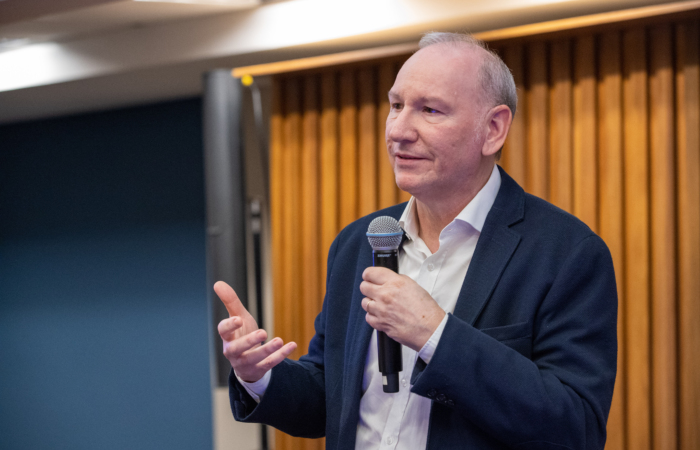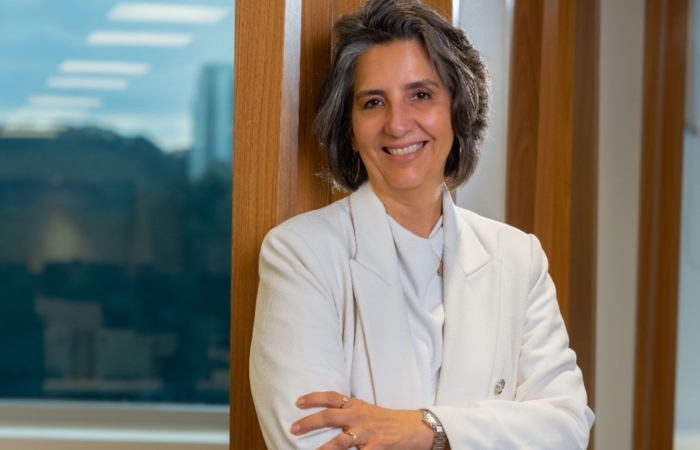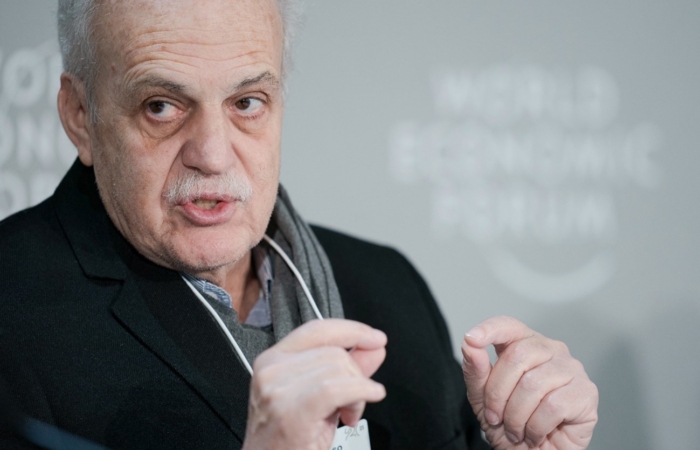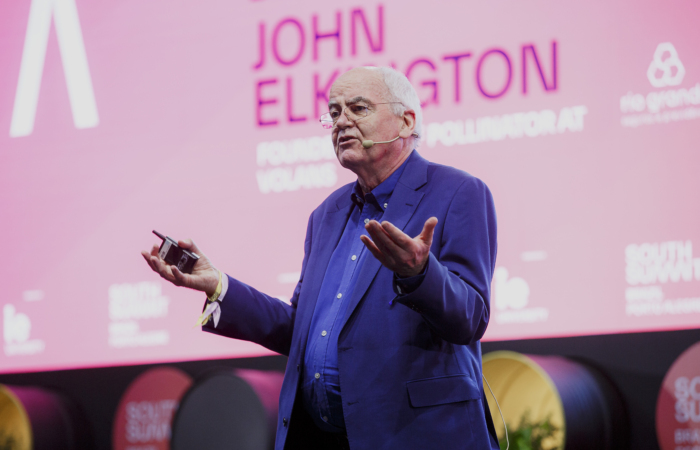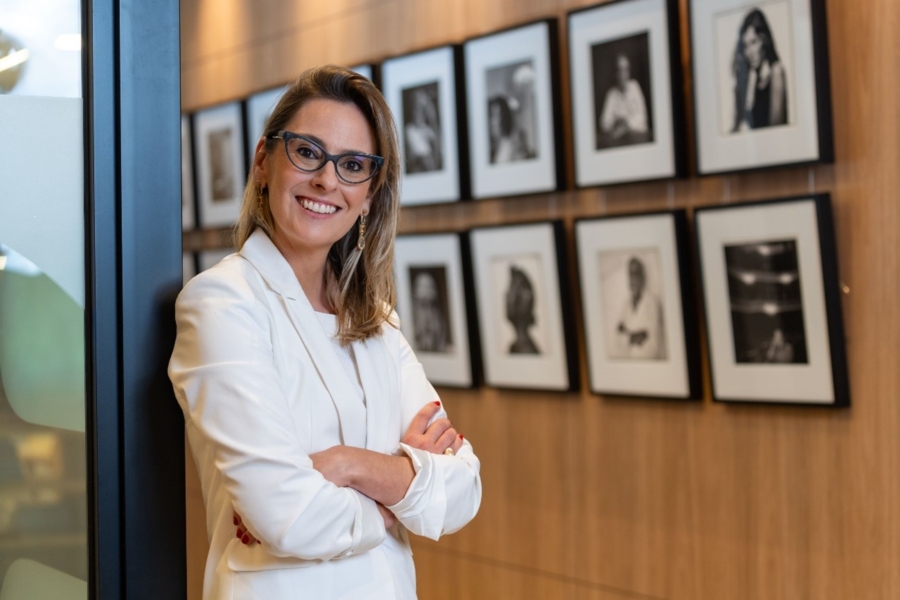
“I have no doubt that, from a reputational point of view, ensuring that ESG practices are appropriate is a prerequisite sine qua non. Now, in relation to the opportunity, the market out there is not willing to pay a green premium, but neither does it want to buy anything that is not green and sustainable.”
Brazilian companies have already understood the issue of climate risks for business, but the private sector has not yet realized the scale of the opportunities that arise with the transition to a greener, low-carbon economy. The warning tone comes from Luciana Antonini Ribeiro, partner at the private equity firm eB Capital, with whom the Reputation Feed spoke to discuss this, which is one of the main contemporary challenges, and also about the relevance of reputation to leverage business.
2024 Leader of the Investment and Infrastructure Task Force of the B20, the main private forum of the G20, and co-creator of the Brazil Climate Summit, a group of leaders formed to position Brazil as a global center for climate solutions, Luciana has been one of the powerful voices in the country to discuss, aggregate and find ways to drive climate action.
In this interview, Luciana talks about the importance of companies taking a long-term position as a business community in relation to climate opportunities; about how companies should prepare to take advantage of COP 30 being held in Brazil in 2025, and also about the journey of building a reputation based on walk the talk.
Check out the main excerpts below:
You lead private and institutional initiatives to encourage investment in solutions that mitigate the effects of climate change and have been called the climate investor. Do you see yourself in this role?
As an investor, I was not born into the climate business, but rather from the perspective of how to invest in extraordinary opportunities for our investors, positively transforming the country. We have invested in different sectors, and I began to come across opportunities linked to climate, which is not the same as sustainability, nor ESG, nor impact investing. They are opportunities for a new economy. So, yes, today I am a climate investor. And my belief is that there is nothing that can produce better returns for our investors and for the country.
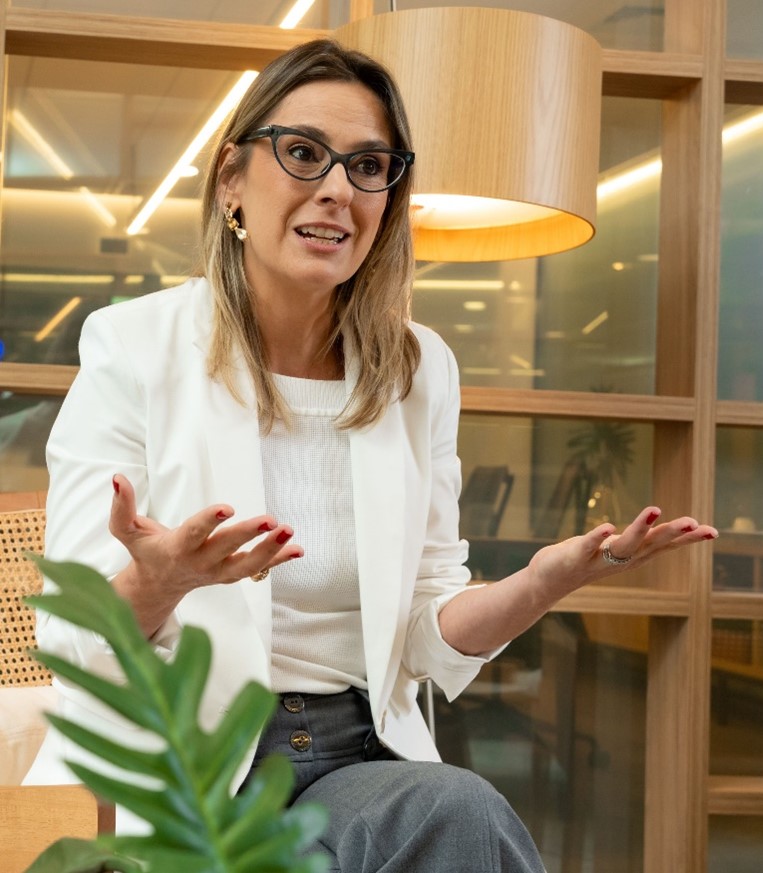
“It’s very powerful for reputation when you have a strong belief aligning your various hats and shows that what you say is what you believe and do.”
What does this recognition as a climate investor represent in building your reputation and leadership trajectory?
As a leader, I have the opportunity to work outside of eB Capital on initiatives that allow for transformation, sometimes even globally. In 2024, for example, I was invited to be chair of the B20 Finance and Infrastructure Task Force (global dialogue forum connecting the business community with G20 governments). This performance of mine no profit, as well as work in the Brazil Climate Summit and now, with the creation of the Brazil Climate Institute, it is part of the same belief that I do for eB Capital and for everyone, especially because there are many competitors in this same environment. It is a cause for Brazil that I believe in and where my money is. All of this forms my reputation and is a very clear example of walk the talk, which I also believe was very relevant in building this image of a climate investor.
How are companies seeing this moment of transition to a new economy?
There are two types of companies: those that understand that the climate issue has become a risk – just look at what happened in Rio Grande do Sul, where floods caused phenomenal losses – and those that see opportunities. And the size of the opportunity is much greater than we think. Steel companies, for example, theoretically have nothing to do with energy transition, but they are increasingly looking for ways to make green steel. And there are many examples. In addition, it is necessary to understand that the carbon emissions will start to have a cost at any moment. Basically, all sectors of the economy will be impacted. Therefore, it is essential to prepare. The question is a little about the speed of the impact, the risk and the opportunities and the positioning in relation to this.
Are companies prepared to combine these speeds or is it still a major challenge?
We are better than we were before, but when I participate in business conversations here and abroad, they are very different.

“The private sector must position itself abroad as a builder of win-win solutions, and also internally, before the government, in what requires public policy, with a vision for the country and not the short term.”
Even among large companies?
Yes. Everyone has already understood the issue of climate risks, but there is still a bit of paralysis, because many of these problems are highly complex and not all opportunities are commercially viable. Some companies are doing very well, but as a business community, we still do not understand the size of the opportunity. And we also do not position ourselves abroad. In fact, we have a huge problem with positioning and reputation. It is not just a problem for the government, as governments change, it is a problem that we, as civil society and as businesspeople, need to take ownership of.
But there are institutions and movements working along these lines, right?
There are several movements, mainly linked to Brazilian public policy, institutions and non-governmental organizations that have played this role. What is missing today is the private capital initiative to have this longer-term vision. At its origin, the Brazil Climate Summit already proposed to show the country's wealth in everything that is necessary for the transition. We realized that it is not enough to simply position Brazil. We need to create conditions for dialogue, to understand what certain countries need, understand the obstacles and build solutions with what we have to offer. So we created the Brazil Climate Institute, a platform to build bridges between the country and other locations through private initiative.
“If we had to take care of the Brazil brand, and assuming that climate is one of the great attributes and competitive advantages of this brand, what are we, Brazilians, doing together to improve the reputation of this entity?”
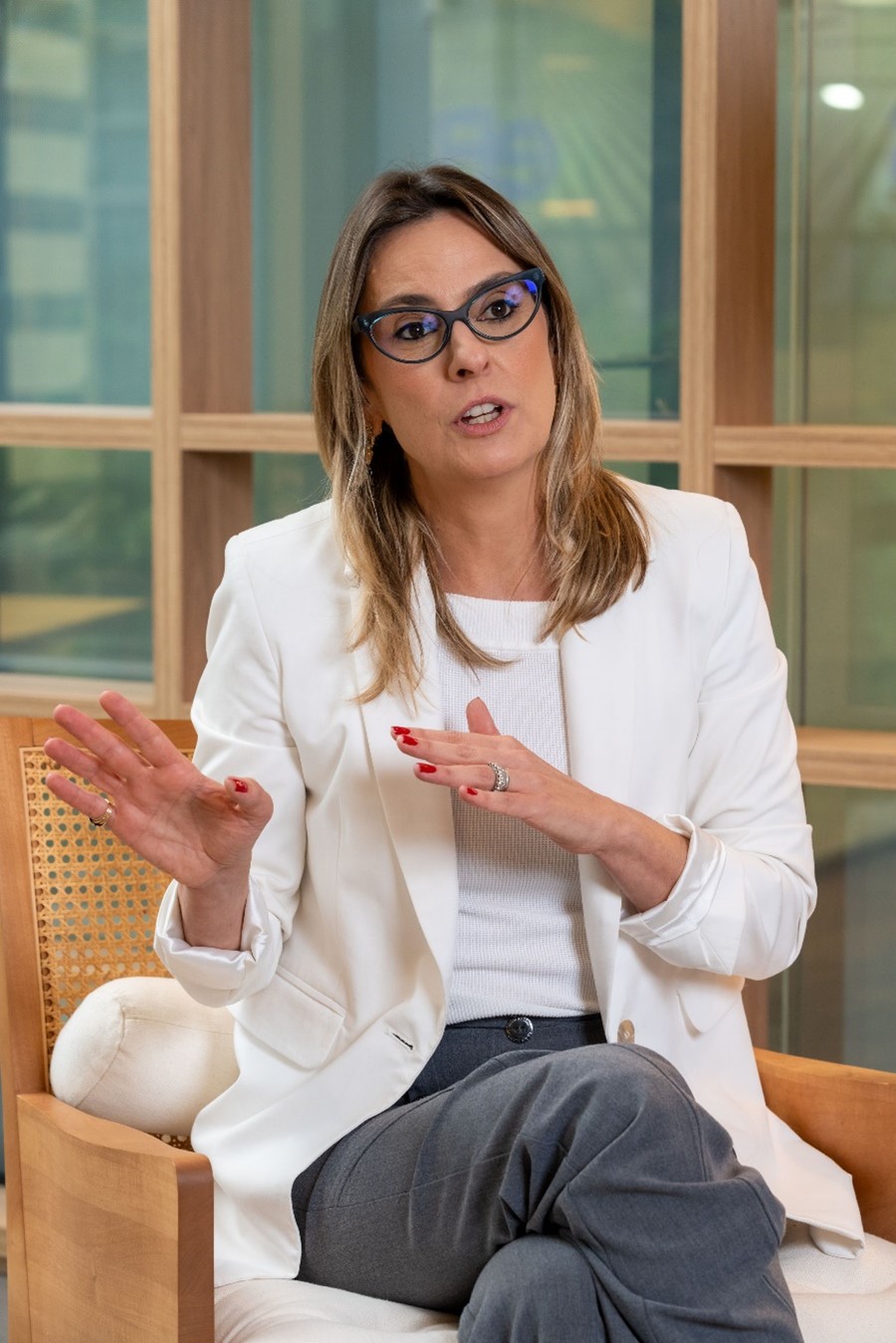
Is there an estimate of the value of the business closed from this initiative?
We do not have this metric. But, in global terms, the projection regarding the climate transition is that approximately US$150 trillion will be needed in the global economy over the next three decades, of which 70%-80% will need to come from private capital. In Brazil, the estimate is somewhere around US$2 trillion to US$5 trillion over this period. So, the size of the opportunity, the size of the investment, is very large.
Individually, how can companies utilize these climate-related opportunities and leverage their reputations?
Increasingly, failure to address sustainability issues tarnishes a company's reputation. The necessary measures are required by the capital market and consumers. I have no doubt that, from a reputational standpoint, ensuring that ESG practices are appropriate is a prerequisite. sine qua non. Now, in relation to the opportunity, the market out there is not willing to pay a green premium, but neither does it want to buy anything that is not green and sustainable.
There is still some division regarding the benefits of EGS: some leaders say there is no turning back, others say the cost is high. What is your assessment?
The discussion on ESG is somewhat truncated. ESG is a set of processes that make companies observe governance, environmental and social issues, based on legal rules and an understanding of their role in society. The fact that economies are transitioning to low-carbon models is another issue and has less to do with the role of companies from an awareness standpoint. It is related to market trends, opportunities and business risk. Therefore, it is important to make this distinction, which is already occurring abroad.
Is this the investor's view?
Investors see that the perspective of risks and opportunities for a low-carbon economy is mandatory. Why? Rivers are drying up, so logistics cannot be done; disasters are becoming more frequent, so insurance is not possible. For example, it would be a mistake for an airline to ignore the trend towards using sustainable aviation fuel. Just as the business of a virgin plastic company whose customers will soon have to use 50% of recycled content in their packaging is at risk. So, it is impossible not to see the low-carbon economy as a risk and as an opportunity. It has to do with the business model. How does an investor view ESG? As a rule, it is the same as due diligence in funds.
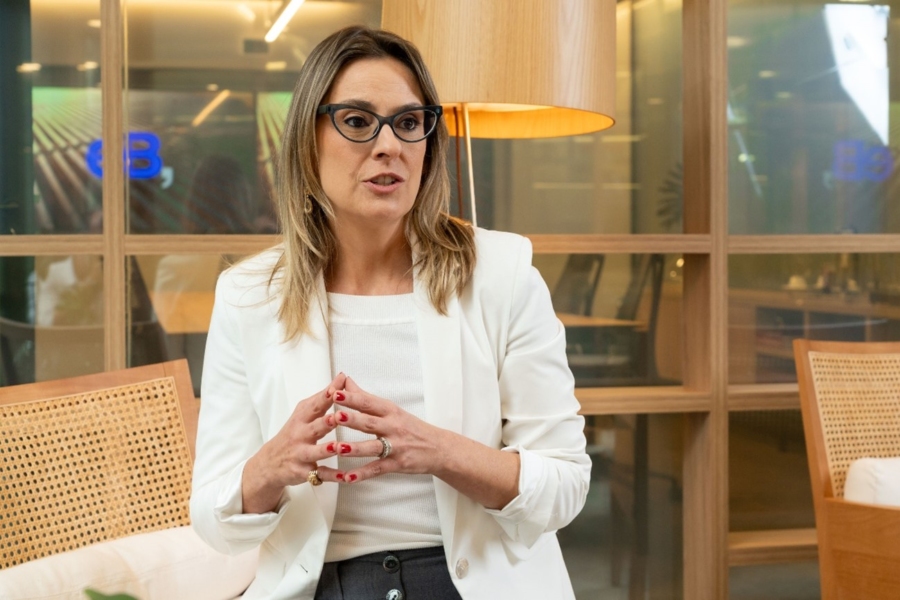
"Does the investor expect you to be an ESG activist? No. The investor expects you to look at the transition to a low-carbon economy from the perspective of risk and risk matrix and from the perspective of opportunity in the core of your core business.”
How important is COP 30 in Brazil for the reputation of Brazilian companies?
COP 30 will shed light on the opportunities that Brazil has. From a historical perspective, the event will take place in Brazil. per se is already relevant, since the COP movement began in the country in 1992. In addition, the NDCs (s) will be reassessedacronym in English for Nationally Determined Contribution, which defines the reduction of greenhouse gas emissions of countries) and the goals to be met in the future. From a reputational standpoint, it shows total alignment with market trends and global movements. If the climate element is central to business and the main event on the topic is taking place in your country, how come you are not present, how come you are not active in this discussion? So, reputationally, it is the way to build positioning in Brazil and abroad.
And, in practical terms, how could companies take advantage of this moment to boost their reputation?
We need to take advantage of this moment of COP 30 to hold a major road show in Brazil about its potential. We must remember that we have always been the ones who have gone abroad. This time, it will be the foreigners who will come. Therefore, as a country and as companies, we need to create a communication strategy that uses their language and perspective. It is no use telling our needs with our narrative and our vision; we need to do an exercise to understand what the world is experiencing, what it expects and wants to solve, so that we can offer this solution in a very practical way. In addition, it is important to participate in the business part of COP 30, to go on a journey to raise awareness with stakeholders about the relevance and opportunity of the event.
Christianne Schmitt is editor of the Reputation Feed
Christianne.schmitt@ankreputation.com.br

